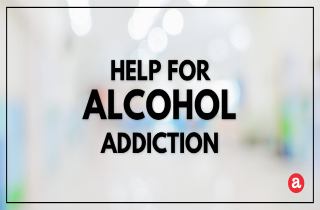Alcohol addiction is one of the most commonly diagnosed addictions in the U.S. today. In fact, treating alcohol addiction has become a public priority. Millions of people c develop binge or problem drinking without becoming physically dependent on alcohol while others continue drinking just to put off withdrawal symptoms. However, admitting to needing help and finding the right kind of help for drinking problems can be daunting.
So what to do if you drink too much? How do medical professionals help treat alcohol addiction? What can you expect during treatment? Or how can you help an alcohol addict get help? We review how to find help for alcohol addiction here and invite your questions about alcohol addiction at the end.
How to help alcohol addiction
There are different types of treatments available to help treat alcohol addiction. These treatments are administered during the three major phases of alcohol addiction treatment: alcohol withdrawal treatment, physical stabilization and psychological alcohol addiction treatment.
Help during alcohol withdrawal
Help during withdrawal from alcohol includes medical interventions and medications. Your family doctor can advise you on whether or not you need medical detox during this time. Alcohol withdrawal treatment addresses the direct symptoms associated with alcohol withdrawal. The goal is to prevent complications from occurring and reduce the intensity, duration and severity of symptoms which are possible. This is why it’s best to consult with a physician to assess your risk of serious symptoms before withdrawing from chronic alcohol use. Do not stop drinking alcohol cold turkey if you’ve been drinking heavily for a period of several weeks or months. Depending on length and amount of use, alcohol withdrawal symptoms can become serious or life threatening and may require medical supervision.
Help during physical stabilization
Physical stabilization occurs in the weeks and months after acute alcohol withdrawal. As your body stabilizes, protracted withdrawal syndrome (PAWS) can occur after you’ve stopped drinking alcohol. Protracted withdrawal for alcohol usually occurs in heavy, long term drinkers who becomereliant on alcohol for a long time. Alcohol PAWS can lead to insomnia, hallucinations and paranoia. Help includes medications such as antidepressants, psychotherapy, or both.
Help for alcohol and psychological treatment
Psychological addiction treatment addresses the deeper reasons behind drinking. Drinking is often a coping mechanism for trauma or upset. In fact, you must look into the psychological and emotional reasons you drink in order to truly change the behavior or to prevent a relapse. Looking into mental compulsion and cravings for alcohol is essential to gaining full help for alcohol addiction.
Getting help for alcohol addiction
Deciding that you need help for alcohol addiction is the first step in addiction recovery. However, taking the next step can be frightening. There are many things to consider and it may seem easier to just relapse and continue the life you are currently leading. However, there is no need to fight against your alcohol addiction alone. There are many places that you can turn to for help.
1. Your Health Care Provider. A family doctor or general physician can help you choose the best type of help for alcohol addiction. s/He can review various types of programs, treatment centers and resources in your area and may be able to refer you to support groups or specialists. Further, a doctor can prescribe medications to help with early alcohol withdrawal symptoms or can monitor alcohol withdrawal on an outpatient basis.
2. Professional Counselling or Support. Support groups are informal groups of other people searching for help for alcoholism. Many support groups are run by people who have been through the same steps and will be more understanding and sympathetic instead of judgemental. If you’d like more formal help for alcohol addiction, a professional counsellor can help you get to the root of the problem. Check your local yellow pages or the American Psychologist Association’s website for licensed psychologists who specialize in addiction issues near you.
3. Alcohol Addiction Treatment Centers. There are many centers in the U.S. who exist to help alcoholics with alcohol addiction. They offers various types of programs but which generally include a detox center and psychological treatments. In an alcohol addiction treatment center, you should be able to resolve alcohol withdrawal symptoms, talk about your problems and find alternatives to deal with your life. It can take weeks or months but you will not have to leave until you are sober and have the skills to remain that way.
How to help an alcohol addict
Alcohol addicts are frequently in denial of their problem with alcohol and many not want to admit that they have a problem. They might be ashamed or think that they do not need the help. The best thing you can do to help an alcohol addict is to be understanding and caring. Learn about the signs and symptoms of alcohol addiction and offer your support to your loved one.
Avoid being judgemental. Right now they need help for alcohol addiction. The time to build bridges and make amends comes later in their recovery. Be there for them every step of the way and show that you love and care about them. Schedule an informal or formal intervention to talk about the ways that alcohol use affects you and your relationship with the alcoholic. Then, encourage the alcohol addict to get treatment and professional help.
Alcohol addiction help and helplines
There are many support groups for help for alcohol addiction including:
- Alcoholics Anonymous, SMART Recovery, or Rational Recovery
- Phone 1-800-662-HELP to find out about local options
- Search findtreatment [dot] samhasa [dot] gov online for more options
Help with alcohol addiction questions
Do you still have questions about help for alcohol addiction? Do you have a story about fighting alcohol addiction? Please leave your questions in comments below and we will get to them as soon as possible.









Related Posts